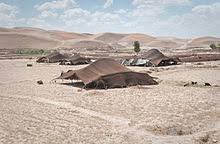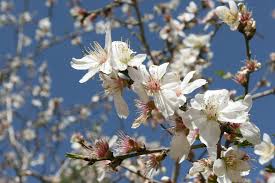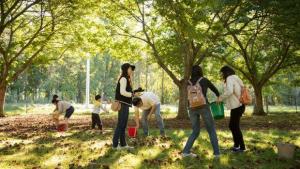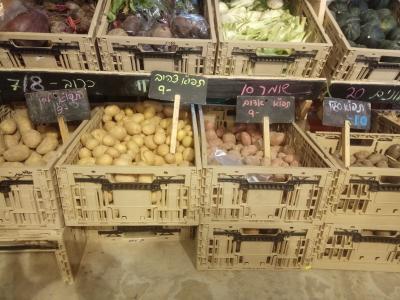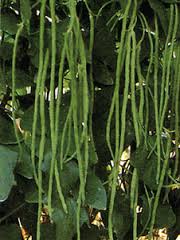According to the calendar February 5 will be Family Day. On the one hand – A day of decorated greeting cards, flowers, handmade crafts by the little ones.
So, I started thinking about families in the "organic" context – The connection between a person to his family, to his tribe, to the landscapes of his home, to the way of life around him by which the family is organized.
I think some of us become nostalgic when trying to imagine what a “natural” life is. “Natural” is not synonymous with pleasant, comfortable, always healthy or a life full of happiness. In nature there are hunters and huntees, epidemics, natural disasters and "just" trivial injuries that cost lives. I suppose that people who lived "close to nature" hundreds or thousands of years ago or are still living this way today in enclaves around the world that are not influenced by the Western world, are not worry-free.
The need to find food and shelter always exists, the uncertainty about what will happen the following day is not gone either – From the weather changes to the plans of the neighboring tribe. I assume that families all over the world, whether living a modern, industrialized lifestyle, saturated with pressures and tensions in apartments located in tall buildings, or living in mud houses hidden in mango groves – Each have their own concerns. Those who can buy antibiotics and painkillers at the pharmacy may assume that living near the earth and feeding from it in a tribal or communal lifestyle is worry-free when it comes to traffic jams and the menacing overdraft at the bank, but it's likely that also people living in a cave are bothered with the daily life problems.
There are various theories that try to guess how the lives of primitive people, engaged in gathering and hunting thousands of years ago, looked. Some assume that their lives were actually comfortable, consisting of more rest and play than preparing food and shelter, and having a rich and rewarding community life. Others maintain that this was a life of survival almost every moment, without respite, that the food was difficult to find and that the existential dangers were many. One way or another, it is reasonable to assume that these were people whose connection with the earth and the flora and fauna around them was much closer – out of necessity.
“Nature” was not a place to go for a hike, nor was it a term in itself – it was an inseparable part of existence, of every action that takes place and every moment of the day. The bonding with the earth was immediate and getting to know it – was essential. Those who did not know to distinguish between edible and poisonous grains probably did not survive to tell about it. Those who could not identify a hostile environment fast enough-probably did not either. It was with this intimacy that the gratitude, the ritual and the offerings to the earth grew, and to the abundance that came from it. Anyone who feeds on the earth and depends on it, is grateful for it.
It is hard for me to imagine exactly what a family life looked like in a tribe of drifters-gatherers. Did the mothers carry the young babies on their backs, or allowed them to be tended by others for some of the time, did they go gathering with them or without? Was the parent-child communication harmonious, or was the parents' dissatisfaction expressed by violence towards the children? I am interested in imagining what a community in which the whole family takes part in fulfilling the needs of existence seems to be – When the children are near the parents while they are busy building a hut or tent, stripping a skin or drying fruit, they take an active part and learn directly what they need to survive.
When the whole family goes on a journey to the next destination, when everyone is exposed to the uncertainty involved in traveling, as well as the excitement and anticipation it brings with it. If the tribe and the family moved from one place to another according to the seasons and the hunting and gathering grounds, how did it feel to return to a familiar place they had left the previous year? To the familiar gathering areas, maybe to objects or signs that they had left behind in the previous time.
Today, the practice of organic agriculture preserves, in a certain sense, this connection between the family and the earth. Concern about the implications of conventional agriculture on the resources left to future generations makes it possible to bring people closer to their food sources. Most of us are maybe not planing on journeying across the continent, but there are quite a few organic communal projects that enable intergenerational contact, as well as attention to the earth (community gardens, self-cultivation plots, seed exchange).
Happy and Organic Family Day.
Yours,
The garden team
Forecast for this week:
Organic vegetable baskets:
Tomatoes
Cucumber
Lettuce
Pepper
Parsley
Potatoes
Spinach
Mangold
Cabbage
Celery Leaves
Large organic vegetable baskets:
Sweet potatoes
Leek
Coriander
Organic fruit baskets:
Oranges
Red Grapefruit
Banana
Large Organic fruit baskets:
Pomelo
Clementine
You can choose off course to mix and match your own order in our website.
If you are around, we are now opened on Sundays, from 1PM.

